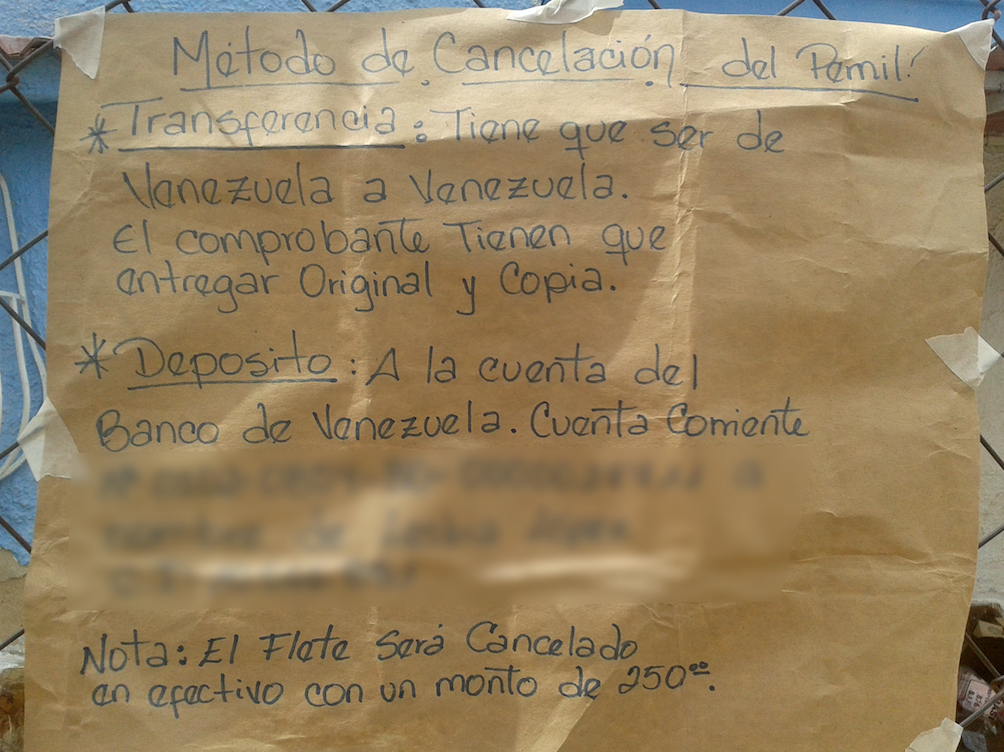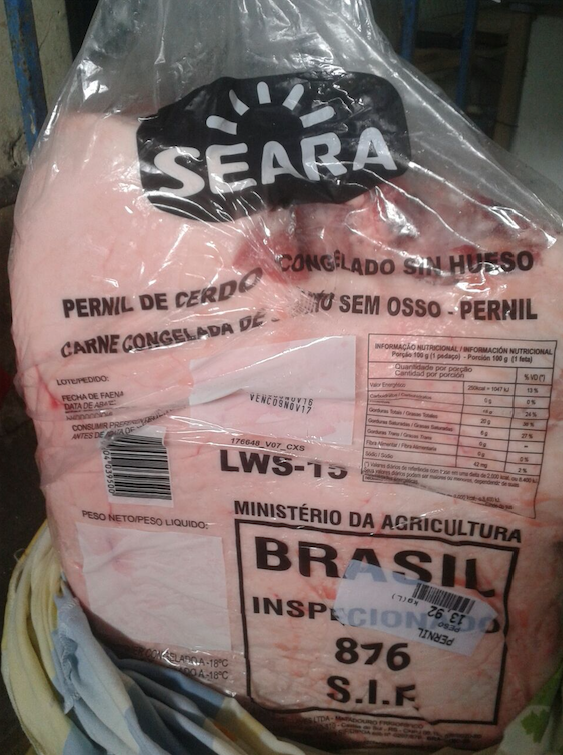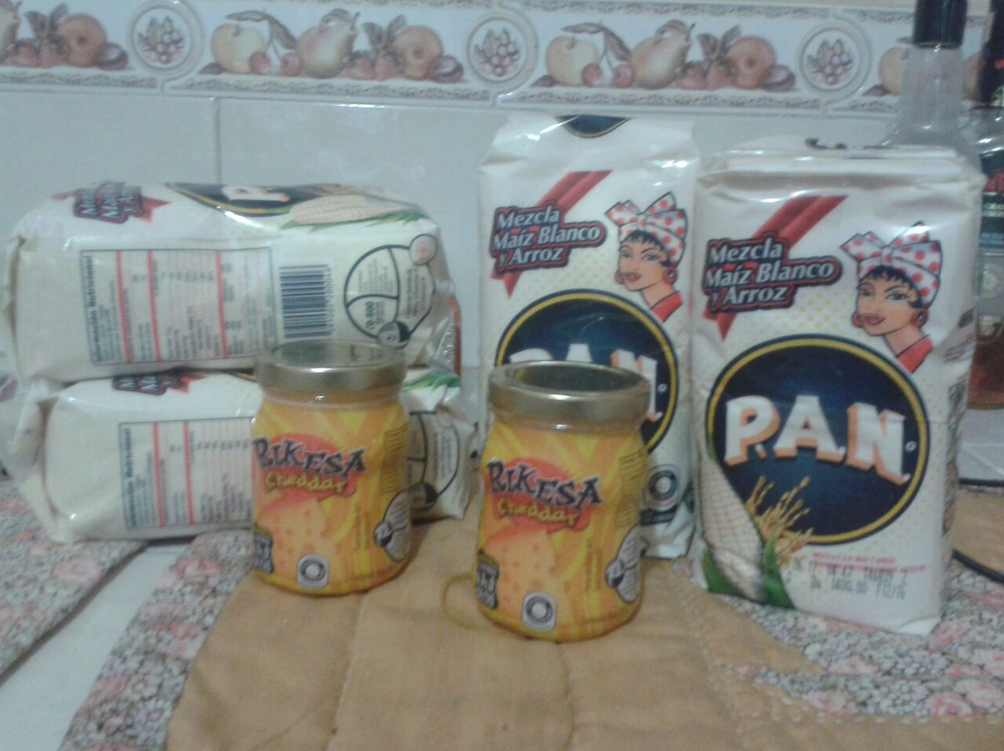In San Juan de los Morros, it's the CLAPs way or the highway
It takes travelling to smaller cities to grasp how malignant the tumor of state-delivered groceries has really grown.


Living in Caracas, it’s easy to think of CLAPs —the Socialist Party-organized neighborhood committees charged with delivering groceries door to door to people— as just one of several ways to get food. But head into Deep Venezuela and a different reality emerges. In small cities, CLAPs are increasingly the only game in town, making the prospect of getting cut off genuinely terrifying.
It’s a reality that came home to me over the holidays this year, which I spent with my grandma in San Juan de Los Morros. It’s a small city of 125,000 that serves as the capital of Guarico, a very rural, very chavista state in the country’s sweltering central plains, the llanos. Like all state capitals in rural Venezuela, San Juan de los Morros is a government town. Everybody’s a public employee, unless you make a living in commerce selling stuff to those public employees.
Grandma’s lived here a long time, in an area known as “Las Palmas,” one of the last parts of the city just before the street grid gives way to the “carretera nacional” to neighboring Aragua. But things have changed a lot in San Juan since she moved there 50 years ago.
The gripes about having to wait for the Communist state to knock on your door to find out if you’ll eat that month sounded like stories from a different planet.
When vice-president Aristóbulo Istúriz announced the CLAPs’ creation, my grandma’s house was among the first to be registered. My family’s complaints about the crappy bag have become a constant: month after month, reporting with arrechera it’s scrawny content, though sometimes also sometimes celebrating una que otra harina pan.
But it all sounded so distant to me. I’m a young guy living in what used to be sifrino neighbourhood in Caracas. The gripes about having to wait for the Communist state to knock on your door to find out if you’ll eat that month sounded like stories from a different planet. In my world, CLAPs are just some schizophrenic populist handout, a delivery version of Mercal
It took going out to see grandma to see how blinkered that view is. Out there, CLAPs are virtually the only way to get the things a family needs to survive.
In Las Palmas, where grandma lives, CLAPs are run by a group of chavista neighbours in coordination with a shady organization in Caracas in charge of sourcing. They’ve micro-segmentated the terrain, to the point that in my grandma’s case, the people who live on her side of the road get their bags from one CLAPs committee, and the people on the opposite side from another.
The segmentation protocol is strict…in its own TropicalMierda way.
A separate branch of the CLAPs behemoth runs a system of “bodegas popular”, neighborhood shops. These are just as tightly segmented: you can go and shop only in the one that corresponds to your address. No exceptions. No me lo contaron: I saw a longtime neighbor of my grandma, Cesar, was taken off the line for the abasto he’d shopped at for years because it’s now a CLAPs Bodega Popular, and it’s not the one he’s assigned to.
The segmentation protocol is strict…in its own TropicalMierda way. There’s no cédula, no censo, nothing. The whole setup relies on a state-of-the-art facial recognition scanning algorithm, in the form of a sixtysomething PSUV T-shirt-wearing lady who looks like Java the Hutt. She sits there behind the bodega fence scanning the crowd and deciding who does and who doesn’t get one of the Golden Tickets you need to buy price-controlled items there.
“Se acabaron los tickets chamo,” she told me as I made a forlorn attempt to get ahold of 2 kg. of Harina PAN to surprise grandma with.
It’s a small bodega. Realistically, they sell more beers than staples, but that they the harina was the thing. I stood around while I called my grandma to let her know I’d failed in my mission. Two seconds later a guy walked in, greeted the same lady, and got his ticket. “It’s because it doesn’t looks like you live around here, boy,” was what a neighbor told me later, sizing up the situation.
Nobody dares to complain. I knew people from the neighborhood who could have put in a word for me, but I wouldn’t dare to ask them: it’s way too risky to challenge these guys. It costs them nothing to cut you off. And they control pretty much all the food in town now.
I come back a little later in the company of my aunt, who knows the bodeguera well and, conveniently, is owed her a couple of favors.
Ay mijo, fuera’ sabido de antes!, she said as she gave me a ticket. That doesn’t mean you walk out with goods right away, though. That would be too simple.
We had to go back the next day, ticket in hand, to stand in the short line to buy the cornflour, en combo, of course: to get the price-controlled flour —the kind mixed with rice flour, because heaven forbid we have anything nice— you have to buy them in a bundle them up with some other product the store can actually make some profit on sardinas, weird knock-off cheezwhiz, whatever.
That was CLAPs Lite. CLAPs Classic is what you’re faced with when la bolsa comes down. On December 29th I found my auntie in front of the house chatting with the vecinas in conspiratorial tones. They were talking about the bolsa that had arrived which, as one neighbor with an inside source at the committee said, came with pernil: the prized pork leg Venezuelans traditionally cook up at Christmas. Yes, I know, Christmas had been four days before, but it was 2016, nobody was going to look at the fine print.
“I wonder how much that bag is going to cost…” said one neighbor.
“Better go to the bank and take out at least Bs.40,000 to set aside for this,” another replied. “We can’t possibly miss out on this.”
That same day we went to the bank to try to get some cash. I asked my aunt what she thought our chances were to get an actual bag, she told me it was a sure thing. The problem wasn’t the bag, it was the cash. This was all amid the Bs.100 bolivar bill freakout, the banks were mobbed with people putting money in, while we were stuck in line trying to take those same, soon-to-be-illegal bills out.
The following day we walked into the barrio to meet up in front of a house and a small bulk of people.
“Yeah, and the toys just never turned up, nawara de bandidos que son esta gente” another replied.
Everybody greeted each other, it was a social event. There was a good vibe in the air, a kind of group joy because of the pernil’s arrival.
“Menos mal que por lo menos esto llegó, at home we didn’t even get to make hallacas” I overheard someone say.
“Yeah, and the toys just never turned up, nawara de bandidos que son esta gente” another replied, oblivious to the irony.
Outside the house, there was a big sheet of wrapping paper with neighbors’s names scribbled across it; is you weren’t on it then no pernil for you.
Then, the unexpected: another piece of wrapping paper has Electronic Wire Transfer instructions scribbled across it. Turns out we didn’t need all that cash…
 To be sure, queuing under the blazing llanero sun next to a delivery truck to get some food so you can have decent New Year’s Eve is nobody’s idea of a good time. People were weirdly both annoyed and happy at the same time. There was an Stockholm syndrome smoothing the scene.
To be sure, queuing under the blazing llanero sun next to a delivery truck to get some food so you can have decent New Year’s Eve is nobody’s idea of a good time. People were weirdly both annoyed and happy at the same time. There was an Stockholm syndrome smoothing the scene.
We went home with the bolsa and the big prize: 12 frozen kilos’ worth of the leg of some unfortunate Brazilian pig. It’s in the oven cooking as I write this. In the kitchen, my grandmother is making the pan de jamón and the ensalada de gallina, just like she does every year, as gaitas play on the radio. Life goes on.
 There’s nothing normal about this new normal, though. There’s a tension in the air about the food shortages, and the feeling that everyone’s got about this. It feels like the whole country is perched precariously on top of a bomb that’s bound to go off sooner or later.
There’s nothing normal about this new normal, though. There’s a tension in the air about the food shortages, and the feeling that everyone’s got about this. It feels like the whole country is perched precariously on top of a bomb that’s bound to go off sooner or later.
Every day, at around 5:00 p.m. a group of heavily armed police officers stopped next to the house, just off the busy road to Maracay. At first I thought it was part of a simple Operativo de Navidad Segura bla bla bla, but my aunt made it clear to me that it was because looting attempts had become too frequent at nightfall there. With all those heavy trucks on that road, people had taken to bunching there at nightfall to see if they manage to pillage one of them.
:/
It’s good being back with the family again. In some ways, this is my home too. It’s where I spent almost every weekend as a child, for one thing. As the smell of the pork wafts in from the kitchen, I can just about close my eyes, concentrate on Betulio Medina’s voice on the radio and just about persuade myself this is a normal Christmas.
But it’s not sustainable. I open my eyes, I think about the daily humiliations my grandma and my aunt are having to endure just to survive out here amid this madness, and the illusion crumbles.
Caracas Chronicles is 100% reader-supported.
We’ve been able to hang on for 22 years in one of the craziest media landscapes in the world. We’ve seen different media outlets in Venezuela (and abroad) closing shop, something we’re looking to avoid at all costs. Your collaboration goes a long way in helping us weather the storm.
Donate





